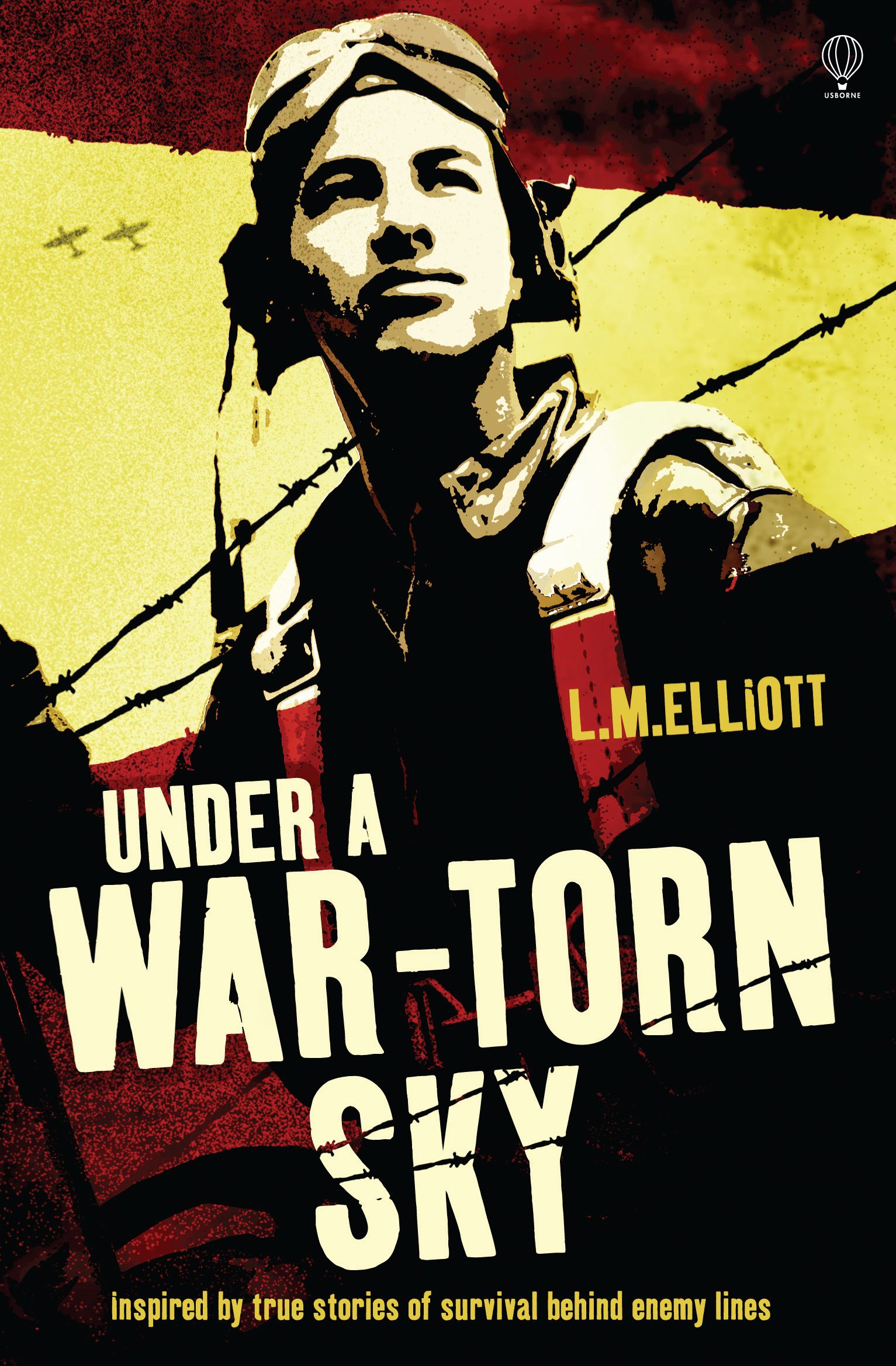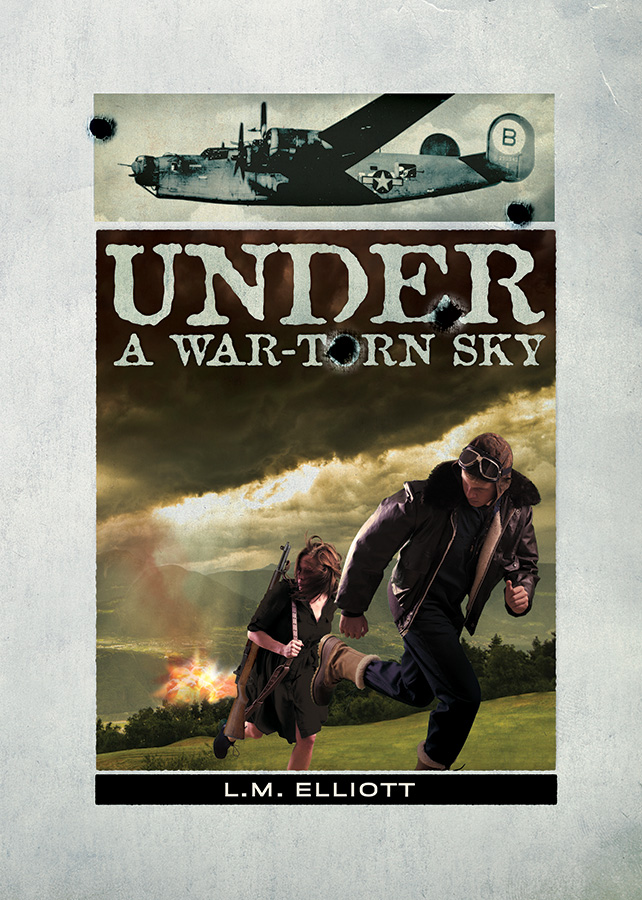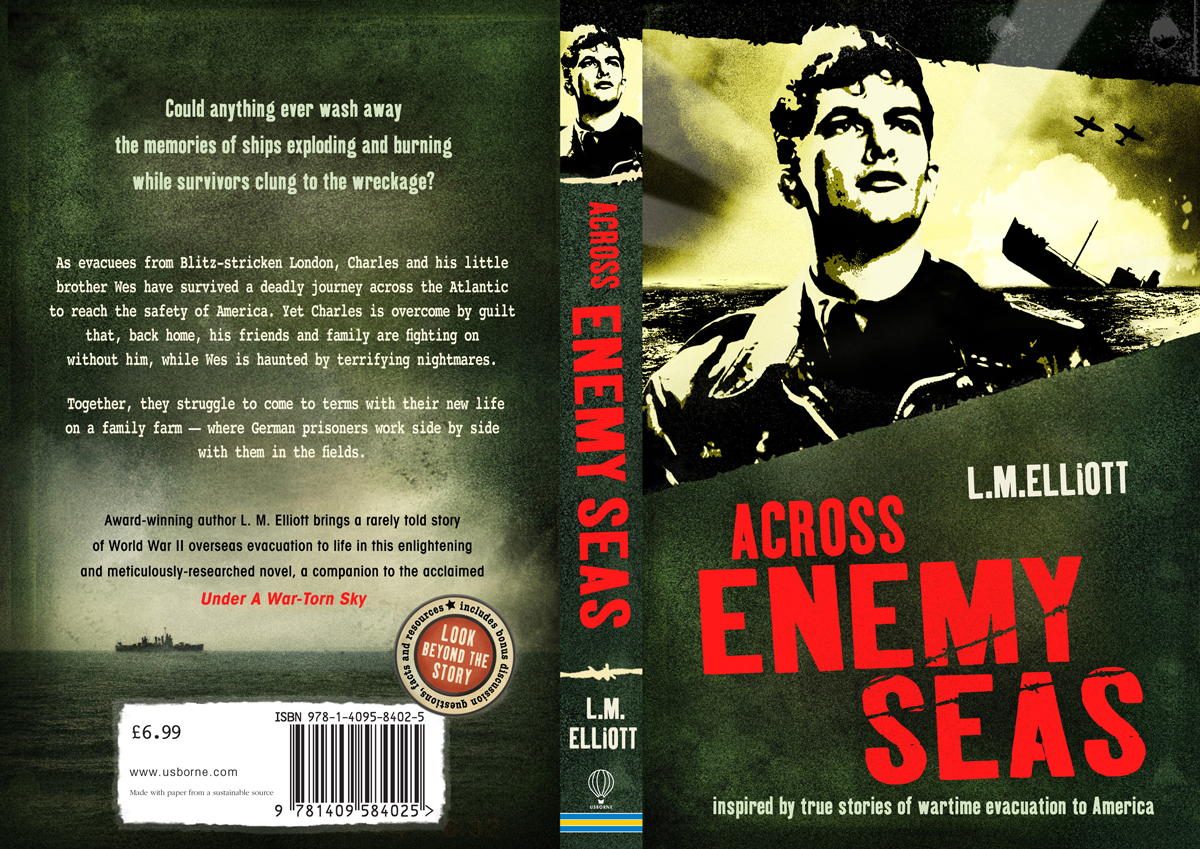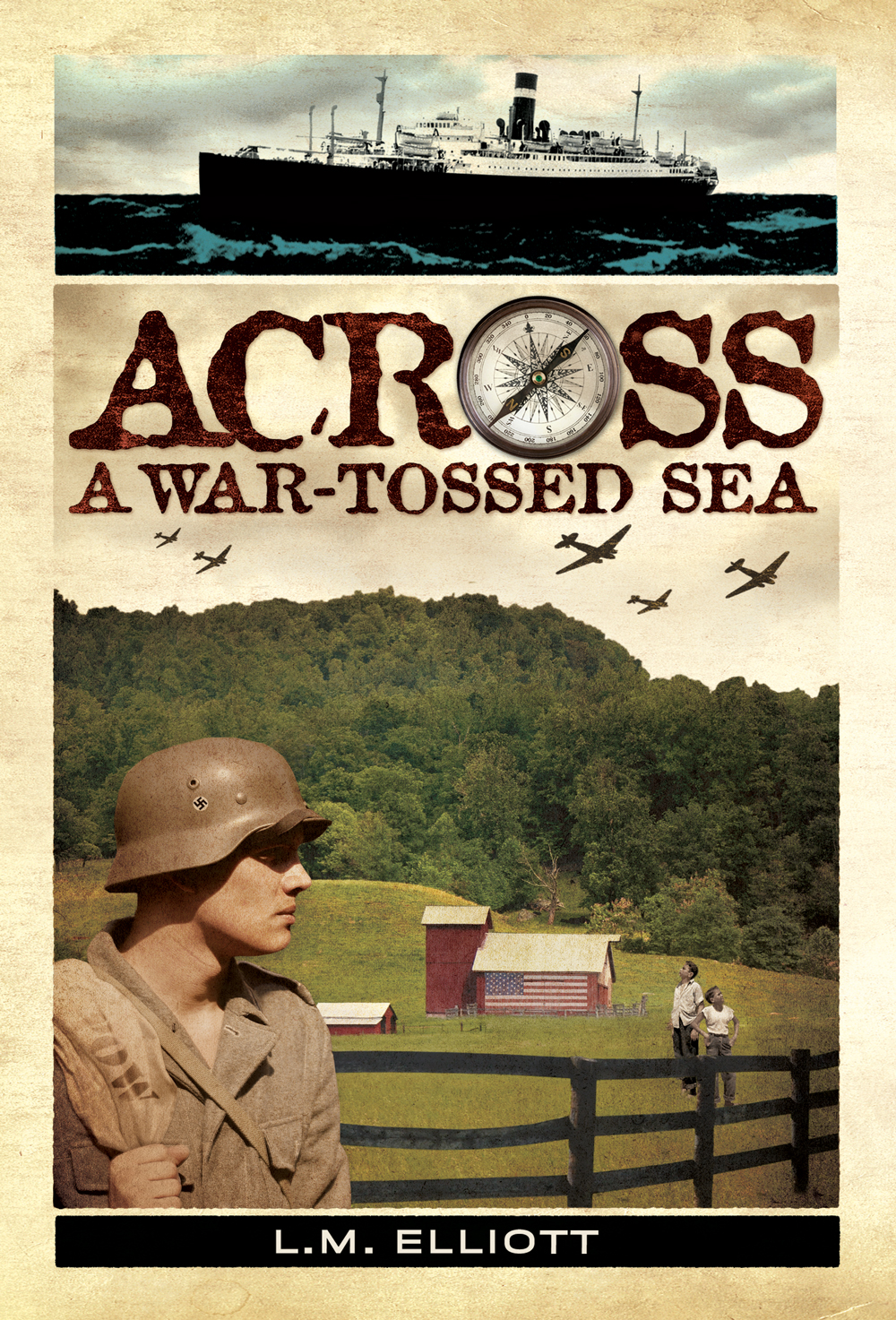
Laura's Blog

Why Write A Trilogy?
April 14, 2015
April has become an exciting month for my latest WWII novel, ACROSS A WAR-TOSSED SEA. The paperback version is now available!
Also released this month is its British edition, published by Usborne and retitled to ACROSS ENEMY SEAS for English audiences. My British editors asked that I write a blog for their webpage, which prompts me to post it here as well. Usborne also created a new cover for their British edition of UNDER A WAR-TORN SKY, just as Hyperion/Disney did for our American edition. Please see below for the wonderful variety in the art department creations!
HOW MY WWII “TRILOGY” CAME TO BE
One of my greatest delights as an author has been the hunger of UNDER A WAR-TORN SKY’s readers to know more—what happens next to Henry, Pierre, Madame Gaulloise, Claudette, and Patsy. Readers ask with such urgency and obvious affection for the characters!
Its first companion novel, A TROUBLED PEACE, follows Henry to post-war France in answer to readers really really really wanting him to marry Patsy. I was so pleased that even 8th grade boys seemed so worried about this! As a Mom, my gut response was NO! They’re too young! Ha ha. But I needed better reasoning than that for this sequel. Knowing soldiers’ emotional struggles following war, I decided Henry needed to deal with some internal demons before he was ready to get engaged—no matter how much he and Patsy loved one another. Henry suffers PTSD and is haunted by worries over Pierre’s fate, and so goes on a quest to find the little boy who had saved his life. What Henry finds in post-war France is horrifying and makes his search for Pierre even more urgent.
My final companion book, ACROSS A WAR-TOSSED SEA delves into the stateside experience of Patsy and her brothers. But its focus is really on the two London boys who escape the Blitz only to discover a whole new set of issues and challenges in rural Virginia. Never doubt the power of research! This entire novel was sparked by a single paragraph in a compilation of Virginia newspaper articles from the 1940s—stating a church in Richmond was trying to find homes for a number of young British evacuees.
I hadn’t known that thousands of British children braved crossing the wide Atlantic, infested with Nazi U-boats, to find refuge in the States. I tossed that detail into UNDER A WAR-TORN SKY, as a way of showing (rather than telling) the generosity and kindness of Patsy’s farm-poor, Depression-era family. I never expected to explore it further. But later I realized that little known fact presented an intriguing and unique conundrum: what was it like for American families to absorb these strangers into their home, sharing their space, their food, their affections. What would it have been like for British boys traumatized by the war to try to settle into ordinary everyday American life, freed of deadly, nightly air raids, or to coexist with German P.O.W.s working Patsy’s farm or to understand the devastating “separate-but-equal” laws for African Americans.
So I devoured evacuee’s memoirs, laughing with the writers about their confusion over our American customs and games, and their delight at things like ice cream and hot showers. I shed tears over their homesickness and their fears for those left behind to suffer the Luftwaffe’s constant bombing. Gathering research for authentic details, I discovered other things I’d never heard of—a top-secret, FAKE airfield outside Richmond, Virginia; Gestapo-like gangs within our German P.O.W camps; and the fact that thousands of American merchant sailors died when their tankers were sunk by Nazi U-boats within view of our East Coast beaches.
(Have any of you sunbathed and enjoyed the ocean waves at Virginia Beach or the Outer Banks or Rehoboth and Bethany beaches or Cape May? Seen cargo ships slip along the horizon? Well, between 1942-44, you might have witnessed one of those boats explode into flames while you were happily building your sand castles. In New York City, Nazi U-Boats regularly trolled the harbor, visible only by their periscopes sliding through the waters.)
Research isn’t just reading, by the way. I believe it should also include going to places in a novel’s settings, experiencing music, clothing, food, etc. of the era. My most moving experiences for UNDER A WAR-TORN SKY came standing in Churchill’s War Rooms in London and in small museums about Resistance groups in France’s Vercors and Morvan regions. For ACROSS A WAR-TOSSED SEA, I reconnected to Tidewater Virginia, the James River, that mellifluous drawl of true Old Dominion natives, and the farming world of my father’s youth. I spent a lovely afternoon with my cousins exploring Curl’s Neck, a question-mark bit of land that is a rich haven for waterfowl. I stood in seas of knee-high winter wheat, inhaling that delicious, slightly briny air, watching hawks and eagles circle above. I stood on the bluffs of Shirley Plantation, overlooking the James where it suddenly expands from a relatively placid waterway to a surging, dangerous two-mile-wide river, coursing with ever-changing tidal currents.
To learn the river’s secrets, I boated along it with a trained naturalist, marveling at the enormous sturgeon that leaped, shimmying, out of the water and then crashed back down with a full-body flop, creating a cannon-like splash. Luckily, my guide merely laughed (rather than reporting me to the police!) when colliding waves from the converging Appomattox River tossed our boat so wildly that I exclaimed, “OMG, is this a good place for me to try to drown a boy?”
Such “experiential research” can inspire important dramatic scenes, or answer questions the author might not have even thought to ask. But I’m sorry—you’ll have to read ACROSS A WAR-TOSSED SEA to see what that particular moment inspired!





Other Blog Posts
Click Here to See All of Laura's Blog Posts
